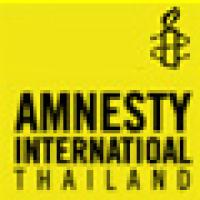แอมเนสตี้ อินเตอร์เนชั่นแนลออกแถลงการณ์ระบุว่าคำตัดสินศาลฎีกาของไทยเมื่อวันที่ 1 สิงหาคม 2556 แสดงให้เห็นว่า ทางการไม่สามารถทำให้เกิดความยุติธรรมกับผู้เสียชีวิต 85 ศพที่เสียชีวิตจากการปฏิบัติงานของเจ้าหน้าที่ความมั่นคงที่อำเภอตากใบได้
เมื่อวันที่ 25 ตุลาคม 2547 เจ้าหน้าที่ความมั่นคงยิงอาวุธปืนใส่ผู้ประท้วงด้านนอกสถานีตำรวจภูธร อำเภอตากใบ จังหวัดนราธิวาส ทำให้มีผู้ถูกยิงเสียชีวิตเจ็ดคน และอีก 78 คนเสียชีวิตเพราะขาดอากาศหายใจหรือเพราะถูกกดทับเป็นเวลานานในรถทหาร ระหว่างการส่งตัวไปยังค่ายทหารเพื่อควบคุมตัว ทั้งยังมีการควบคุมตัวผู้ชุมนุมอีกประมาณ 1,200 คนในค่ายทหารเป็นเวลาหลายวัน โดยไม่ให้การรักษาพยาบาล ทั้ง ๆ ที่หลายคนได้รับบาดเจ็บสาหัส
ศาลฎีกาพิพากษายืนตามคำสั่งศาลชั้นต้น โดยระบุว่า แม้จะมีการเสียชีวิตเกิดขึ้นแต่ก็ไม่อาจตำหนิเจ้าพนักงานได้ เนื่องจากเป็นการปฏิบัติงานในหน้าที่ทางราชการ
อิสเบล อาร์ราดอน (Isabelle Arradon) รองผู้อำนวยการภาคพื้นเอเชียแปซิฟิก แอมเนสตี้ อินเตอร์เนชั่นแนล กล่าวว่าคำสั่งศาลไม่กล่าวถึงการปฏิบัติหน้าที่ของกองกำลังและเจ้าหน้าที่ความมั่นคงที่เกี่ยวข้องในเหตุการณ์ ซึ่งนำไปสู่การเสียชีวิตของประชาชน 85 คน ทั้ง ๆ ที่การปฏิบัติของเจ้าหน้าที่เป็นไปในลักษณะที่จงใจหรือโดยประมาท และด้วยเหตุดังกล่าวพวกเขาควรถูกนำตัวเข้าสู่การไต่สวนของศาล ซึ่งครอบครัวของเหยื่อต้องรอคอยความยุติธรรมมา กว่าแปดปีแล้ว
“การลอยนวลพ้นผิดของเจ้าหน้าที่รัฐเกิดขึ้นทั่วไปในไทย โดยเฉพาะในจังหวัดชายแดนใต้ คำตัดสินของศาลในวันนี้ไม่ได้เป็นการประกันว่าจะไม่มีเหตุการณ์เช่นนี้เกิดขึ้นอีก ทางการไทยมีหน้าที่ตามกฎหมายระหว่างประเทศที่จะต้องลงโทษผู้มีส่วนรับผิดชอบ และจัดให้มีการเยียวยาอย่างเต็มที่ต่อผู้ได้รับผลกระทบ และต้องยอมรับความจริงเกี่ยวกับเหตุการณ์ที่เกิดขึ้นที่อำเภอตากใบ” อิสเบล อาร์ราดอนกล่าว
ทางการไทยประกาศใช้พระราชกำหนดในสถานการณ์ฉุกเฉินในจังหวัดชายแดนใต้ตั้งแต่ปี 2548 และคณะรัฐมนตรีมีมติขยายการประกาศใช้อีกครั้งเมื่อเดือนมิถุนายน 2556 พระราชกำหนดดังกล่าวป้องกันไม่ให้มีการนำตัวเจ้าหน้าที่ความมั่นคงที่ละเมิดสิทธิมนุษยชนมาลงโทษ
“ความรุนแรงในจังหวัดชายแดนใต้ยังคงเกิดขึ้นต่อไป การสร้างสันติสุขในพื้นที่ ต้องเกิดขึ้นพร้อมกับความพยายามอย่างจริงจังที่จะนำตัวผู้ละเมิดสิทธิมนุษยชนในอดีตมาลงโทษ และต้องประกันว่าผู้เสียหายจะได้รับการเยียวยาอย่างเต็มที่ โดยรัฐบาลไทยควรยกเลิกพระราชกำหนดในสถานการณ์ฉุกเฉินก่อนเป็นอันดับแรก” อิสเบล อาร์ราดอนกล่าว
ข้อมูลพื้นฐาน
ในปี 2552 ภายหลังจากศาลจังหวัดสงขลาอ่านคำสั่งในการไต่สวนการตายกรณีการเสียชีวิตของบุคคล 78 คนที่อำเภอตากใบทางภาคใต้ ศาลระบุว่าการเสียชีวิตเกิดขึ้นจากการขาดอากาศหายใจ แต่ไม่ระบุรายละเอียดของพฤติการณ์การตายตามที่กฎหมายกำหนด ญาติของผู้เสียชีวิตจึงยื่นอุทธรณ์ต่อศาลอาญาให้ทบทวนคำสั่งไต่สวนการตาย ต่อมาได้อุทธรณ์ต่อศาลอุทธรณ์ และศาลฎีกาตามลำดับ
คำสั่งของศาลฎีกาเมื่อวันที่ 1 สิงหาคม 2556 ระบุว่า ญาติของผู้เสียหายควรส่งคำคัดค้านยื่นต่อศาลชั้นต้นที่พิจารณาคดีนั้น ไม่ใช่ศาลอาญาที่กรุงเทพฯ ผลจากคำสั่งดังกล่าวคือการพิพากษายืนตามคำสั่งของศาลจังหวัดสงขลา ซึ่งระบุว่า การเสียชีวิตของบุคคล 78 คนเป็นผลมาจากการขาดอากาศหายใจ และเจ้าหน้าที่ความมั่นคงไม่มีส่วนรับผิดชอบ เนื่องจากเป็นการปฏิบัติงานในหน้าที่ทางราชการ
1 August 2013
Thailand: Government fails to provide justice for the victims of Tak Bai killings
A ruling by Thailand’s Supreme Court shows how the authorities have failed to provide justice for 85 people that died at the hands of the security forces in Tak Bai, Amnesty International said.
“Today’s ruling ignores the actions of security forces and officials involved in events that led to deaths of 85 people. Their actions were either intentional or negligent and therefore those involved should be brought to court. Families have been waiting for more than eight years for justice,” said Isabelle Arradon, Amnesty International’s Deputy Asia Pacific Director.
On 25 October 2004 security forces opened fire on protesters demonstrating outside Tak Bai police station in the southern province of Narathiwat.
Seven were shot dead, and a further 78 were suffocated or crushed to death in army vans transporting them to a military detention camp. Some 1,200 people were also held in military custody for days without medical attention, many of whom were severely injured.
The Supreme Court today upheld previous court rulings on the incident, saying that despite the deaths, security personnel were blameless and had only been performing their duties.
“State impunity is rife in Thailand, in particular in the southern provinces. Today’s ruling by the Court will do nothing to ensure that these incidents cannot simply happen again. The authorities have a duty under international law to bring those responsible to justice, and provide full reparations to those affected – the truth of what happened in Tak Bai must be acknowledged,” said Isabelle Arradon.
Thailand’s three southernmost provinces have been ruled by an emergency decree since 2005, which was renewed again by the government in June 2013.
The decree prevents security forces from being held to account for human rights violations.
“There is a continual problem of violence in the three southern-most provinces,” said Arradon. “Measures to bring about peace in the region must go hand in hand with a real and sustained effort to bring perpetrators of past human rights violations to justice and ensure that victims can receive reparations. The Thai government should, as a very first step, repeal the Emergency Decree.”
Background
In 2009, following the result of an inquest into the 78 deaths in Tak Bai, the Songkla Provincial Court in the South of Thailand ruled that the deaths were caused by suffocation, but did not elaborate on the manner of death as required by law. Relatives of the victims subsequently challenged the Provincial Court’s ruling at the Central Criminal Court, the Appeal Court and later at the Supreme Court.
Today’s ruling by the Supreme Court stated that the relatives should submit their challenge to the Songkla Provincial Court, not to the Central Criminal Court. The consequence of this decision is to uphold the previous court ruling of Songkla Provincial Court, which stated that the 78 died only from suffocation and that security personnel were blameless and had only been performing their duty.

